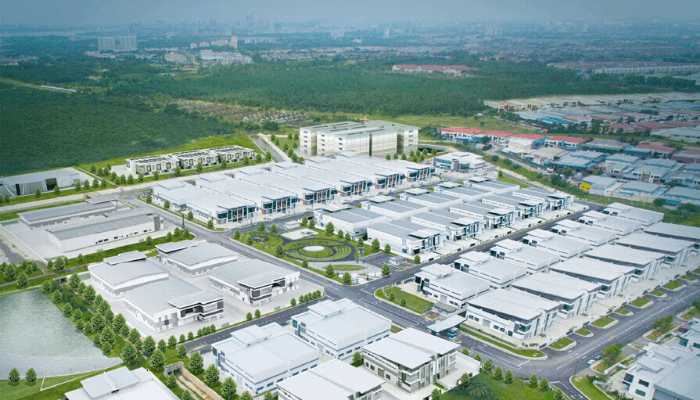Calabar Free Trade Zone (CFTZ) is among the earliest free zones in Nigeria, established to foster economic growth in the country. As Nigeria aims to emerge as a key player in Africa's economy, the government actively encourages foreign direct investment (FDI) through initiatives like Export Processing Zones (EPZs). Among the thirty-two EPZs approved, thirteen are operational, including the pivotal Calabar Free Trade Zone.
Situated near the port of Calabar in Cross River State, Nigeria, CFTZ spans an area of 152 hectares. Originally known as Calabar Export Processing Zone, it was officially converted to Calabar Free Trade Zone in 2001. This change clarified that the zone not only facilitates the production of goods and services for export but also permits various other business activities such as assembly, distribution, packaging, and warehousing.

Benefits of Calabar Free Trade Zone
The benefits of establishing a company in the Calabar Free Trade Zone (CFTZ) in Nigeria are numerous:
- Tax Exemption: Companies within the CFTZ are exempt from government taxes and levies, allowing for cost savings and increased profitability.
- Foreign Ownership: Foreign investors can fully own their enterprises within the CFTZ without the need for a local sponsor, providing greater control and autonomy.
- Rent-Free Construction: During the construction phase, companies are not required to pay rent for the space occupied within the CFTZ, reducing initial overhead costs.
- Strategic Location: The proximity of the free zone to the Calabar Free Port and the city of Calabar facilitates easy access to raw materials imports and expedites the export of finished goods.
- Infrastructure and Services: The CFTZ offers reliable electricity, potable water, sanitation facilities, and essential services like banking, medical clinics, cargo handling, and warehouses, supporting business operations.
- Security Measures: With its own police station, private security company, fenced perimeter, and dedicated security personnel, the CFTZ ensures a safe environment for companies operating within its premises.
FACILITIES of Calabar Free Trade Zone
The Calabar Free Trade Zone offers a range of facilities to support businesses:
- Ample Industrial Land: A large expanse of industrial land is available with convenient access to international air and seaports, facilitating trade activities.
- Specialized Customs and Immigration Services: Trained Free Zone Customs and Immigration personnel are present to facilitate customs and immigration processes specific to free zones, ensuring efficient clearance of goods.
- Dedicated Police Post: A police post within the zone provides additional security measures to safeguard businesses and employees.
- Pre-Built Warehouses: Pre-built warehouses are available for storing products, facilitating repackaging, and enabling efficient inventory management.
- Telecommunication Facilities: Modern and efficient telecommunication facilities are provided to support communication needs within the zone.
- Reliable Utilities: Businesses benefit from uninterrupted electricity and water supply, ensuring continuous operations.
- Well-Connected Road Network: The zone boasts a well-developed internal and external road network, facilitating transportation of goods to and from the zone.
- Central Transit Warehousing: Central transit warehousing facilities are available at major ports to streamline the handling of goods within the free zone.
Industries Permitted in CFTZ
The industries permitted in the Calabar Free Trade Zone (CFTZ) include:
- Electrical and electronic products
- Garments, wood products, and handicrafts
- Leather products
- Petroleum products
- Textile products
- Rubber and plastic products
- Cosmetics and other chemical products
- Printing materials
- Communication and office equipment
- Medical kits
- Educational materials and sports equipment
- Optical instruments and appliances
- Biscuits, confectionery, and food processing
- Pharmaceuticals
- Metal products and machinery
These industries cover a wide range of sectors, providing opportunities for various types of manufacturing and trading activities within the free trade zone.
Investment Procedures in Calabar Free Trade Zone
The investment procedures can be summarized as follows:
- Inquiries and Obtaining Investment Application Forms:
Interested parties make inquiries and obtain Investment Application Forms.
- Inspection of Pre-built Factory Buildings and Industrial Plots:
Potential investors inspect available pre-built factory buildings and industrial plots to assess suitability.
- Submission of Investment Application Forms:
Completed Investment Application Forms are submitted.
- Screening and Processing of Application Forms:
Application Forms undergo screening and processing.
- Company Registration Application (if approved):
If the application is approved, investors proceed to apply for company registration.
The options for acquiring a standard factory building in the given context are outlined as follows:
Outright Purchase:
A 10% deposit of the selling price is required within 3 months of approval.
The remaining 90% balance is to be paid 5 months after the initial deposit.
Renting:
A down payment of one year's rent is necessary.
Leasing:
40% of the lease value must be paid upon approval.
30% of the lease value is due at the end of the 1st 5 years.
The remaining 30% balance is payable at the end of the 10th year.
Additionally, there is a provision for leasing service plots or factory buildings, as well as a requirement for pre-production inspection of factory buildings, plants, and machinery before commencing operations.
Updated on: 03/10/2024